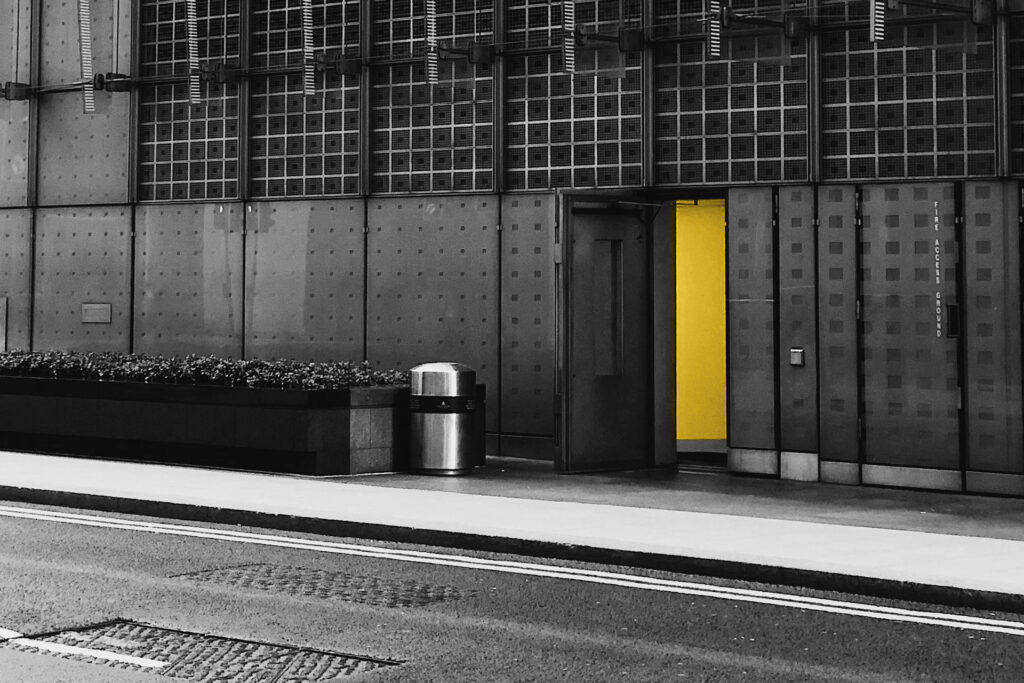Growing up in a council estate, you can often feel like you have limited options in life. There are thousands of young people in the UK full of potential and ingenuity, but currently facing family, financial or academic problems, navigating a locality filled with drug abuse and violence. Until I went to university and later came to the City, I had no idea how far removed my world was from others’ in my industry, or from how far behind everyone else we have to start the race. Now that I am here, I want to open doors for others from similar backgrounds, and show them that it’s possible to overcome the cycle.
My family come from Mogadishu, in Somalia. A civil war kicked off there in the early 90s, and they fled to Kenya, where I was born. We were lucky, in the circumstance: we came to the UK in 1994, when I was one. We knew nothing about how the system works, but eventually settled on a council estate in Harrow, just a five-minute drive from the enormous wealth on the Hill.
I am grateful for what we had, but it wasn’t much. We had to rely on state benefits, and as a rule my friends and I had few opportunities. I was lucky: my aptitudes opened academic doors that created chances to better myself and my position. I had to work at it, and make hard choices, but I saw a better future ahead.
Already at about 16, I saw many of the people I was growing up with, that were incredibly close to me, going down the wrong path and resorting to things they shouldn’t. They didn’t feel they had a choice, it’s hard to think about finally earning money after another five years of education when your mother is struggling to put food on the plate today.
Most young people from council estates believe they have two options to better their lives; footballer or drug dealer. It’s the lack of understanding about the options out there that continue the cycle of deprivation. Some of my childhood friends are in prison, some are suffering from serious mental health issues and some are homeless. I am grateful to be where I am today, but it deeply pains me to think about them.
There are many who pushed through and have become hugely successful in many different careers. In fact, there are a couple who actually did become professional footballers, but overall they are few and far between. Looking at it as an actuary, the outcomes are way too volatile, and the downside risk is much higher and more severe than the potentially good outcomes.
I was fortunate to see then that the choices most people around me were making weren’t the kind you could turn back from easily, and would have long-lasting influences on their lives.
I tried hard to see beyond the short-term, to have the foresight and stay focused on my education. From sixth-form I went off to university to study architecture, but after about six months I met an actuary at the mosque. I was 18, and I had never heard of the profession. He explained it, captured my interest, and I changed my course of study to actuarial science. That brought me to where I am today.
When I came to the City I found quite a number of people with family links to the insurance industry, which gave them knowledge and connections that helped them through the door. That realisation opened my eyes to an advantage that many have and take for granted, since it was all they had known, and possibly the norm. I think about what was normal for me and how different it is, and I think about some of my friends and their talents. I wonder what they could have achieved if they had the same opportunities, or guidance.
It has taken me some time to feel like I ‘belong’ or ‘fit in’. Early in my career at a previous employer, I overheard a receptionist in conversation with a visitor about a terrorist attack abroad. ‘All those Muslims are crazy,’ she said, and I just assumed this attitude might just be what I should come to expect here, what people really think.
Luckily my experience since then has been extremely positive, and I have been fortunate to work in diverse teams with open minded people. However, I am all too aware of what Black and Brown people face in the workplace everyday. The intersection of race, religion, gender and social class can create many obstacles in our careers, and it is all of our responsibility to force change in the industries we work in.
I believe it is my duty now to give back and help to open doors, or provide more options for young people from council estates and less affluent backgrounds who feel their options are limited, and do not have access to crucial life changing information or guidance. Those young people are therefore at risk of continuing the cycle they seem destined to fall into as a result of their social class – something entirely out of their control. Those young people are me, they are my friends, my family, and they are us. I want them to know that we will break the cycle.
By Ibrahim Hassan, Pricing Analyst at Tokio Marine Kiln

